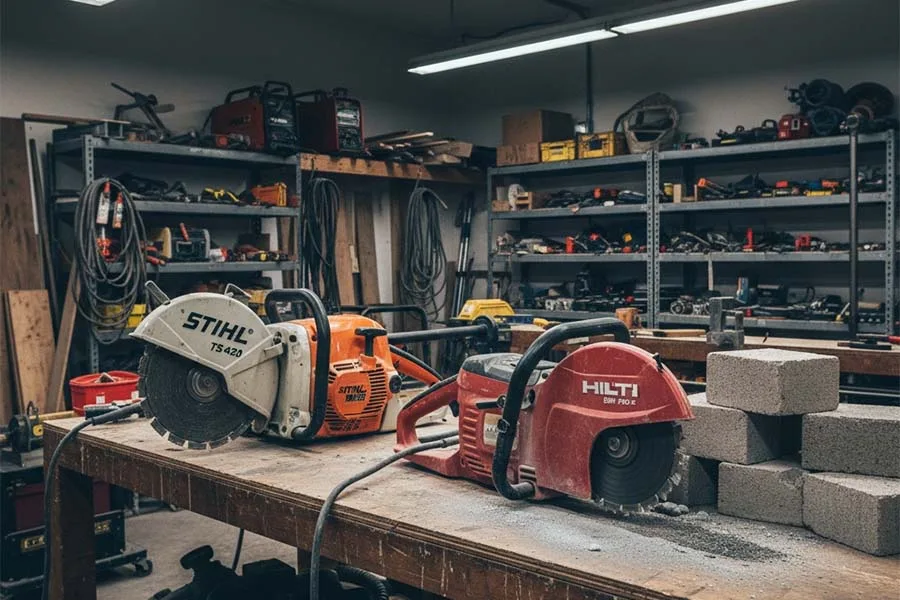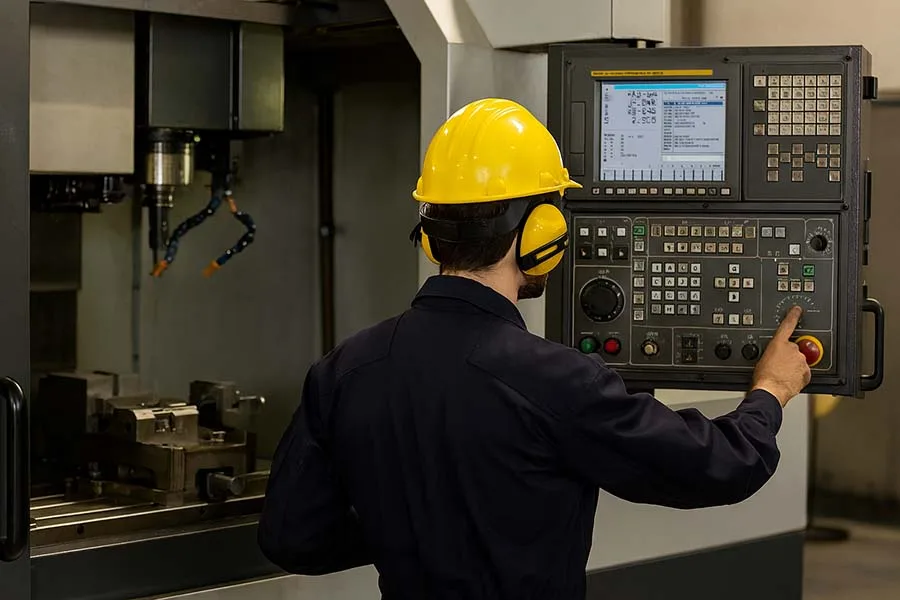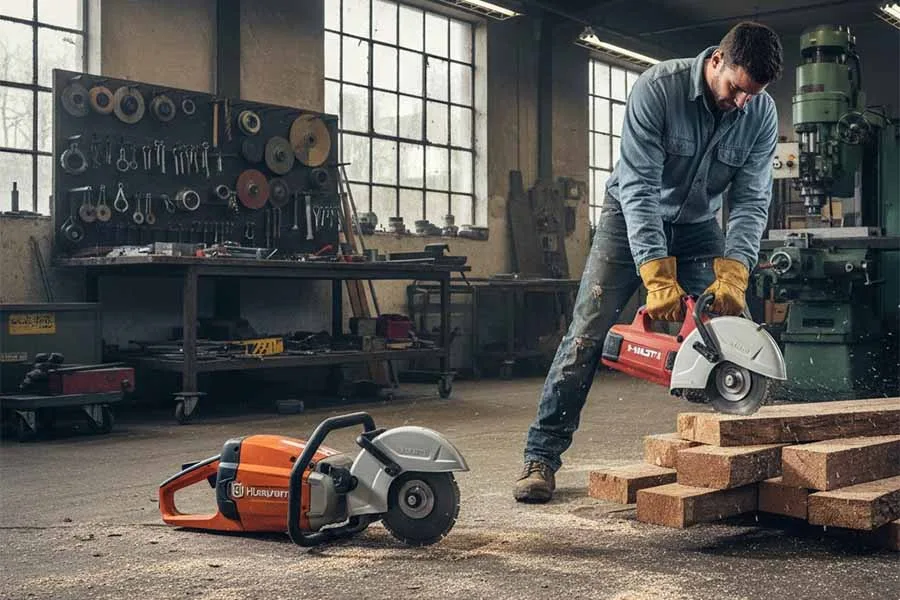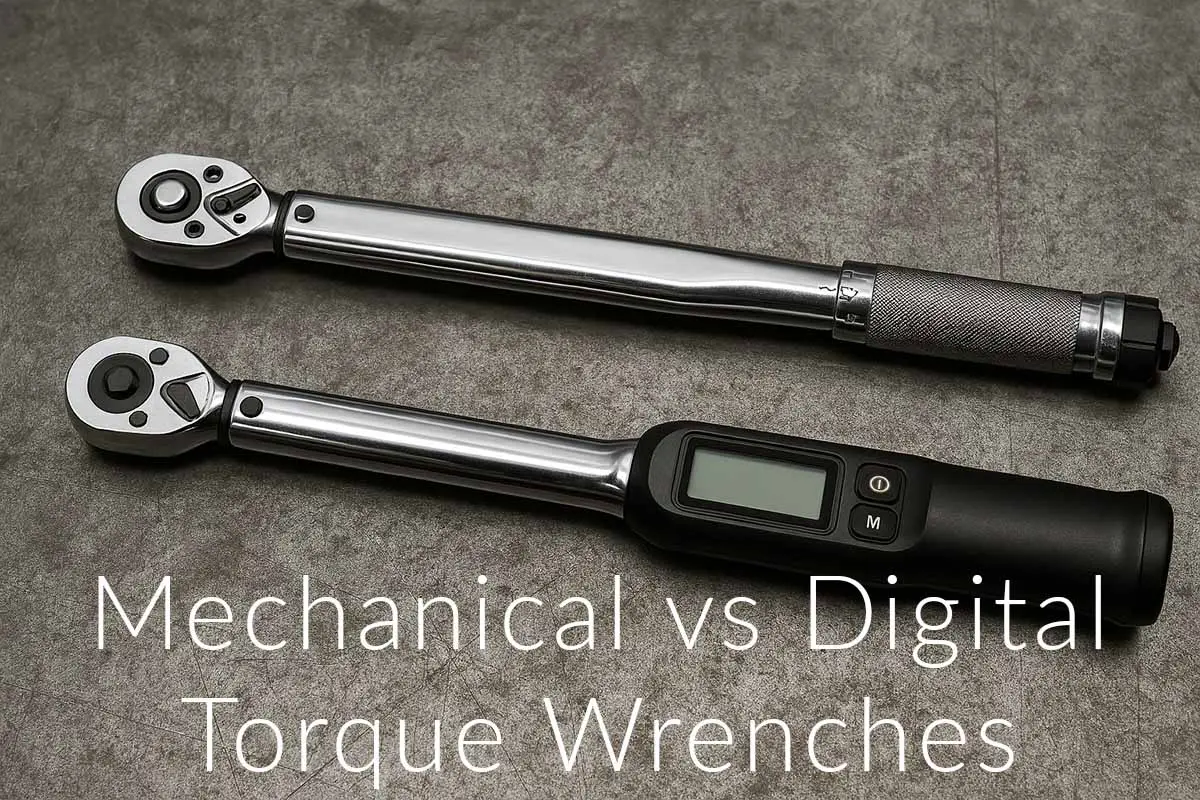Introduction: Two Titans of Concrete Cutting
When the job demands precision, power, and reliability, professionals turn to cut-off saws that can handle the grind. The STIHL TS 420 Cutquik® and the Hilti DSH 700-X are two of the most respected names in the concrete cutting world. Whether you’re slicing through masonry, prepping for demolition, or tackling utility trenching, these tools are built to deliver.
But which one truly earns its place on your crew? This comparison dives deep into specs, usability, and buyer fit—so you can choose the cutter that cuts ahead.
Side-by-Side Feature & Specification Breakdown
| Feature | STIHL TS 420 Cutquik® | Hilti DSH 700-X |
|---|---|---|
| Engine Power | 4.4 bhp / ~3.2 kW | ~5.0 bhp / ~3.7 kW |
| Displacement | 66.7 cc | ~70 cc |
| Max Cutting Depth | 125 mm / 4.9″ | ~130 mm / 5.1″ |
| Max Wheel Size | 14″ | 14″ |
| Weight (dry) | ~9.6 kg / 21.2 lb | ~10.9 kg / 24 lb |
| Fuel Tank Capacity | 710 cc / 24 oz | ~800 cc / 27 oz |
| Vibration Control | STIHL Anti-Vibration System | Hilti Low-Vibration Handles |
| Air Filtration | X² Air Filtration System | Cyclone Air Filtration |
| Starting System | ElastoStart™ | Easy Start System |
| Belt Tensioning | Semi-Automatic | Tool-Free Adjustment |
Strengths & Weaknesses
🔧 STIHL TS 420 Cutquik®
Strengths:
- Lightweight and easy to maneuver
- Proven reliability in daily construction use
- Low maintenance with IntelliCarb™ and X² filtration
- Ergonomic top-handle and ElastoStart™ for smooth starts
Weaknesses:
- Limited cutting depth (4.9″)
- Louder operation (~98 dB)
- Requires fuel mixing (2-stroke engine)
🔧 Hilti DSH 700-X
Strengths:
- More powerful engine and slightly deeper cuts
- Cyclone filtration extends filter life
- Tool-less blade guard and belt adjustment
- Built for rescue and heavy-duty demolition
Weaknesses:
- Heavier than STIHL
- Higher upfront cost
- Slightly more complex for beginners
Verdicts by Category
| Category | Winner | Why |
|---|---|---|
| Price | STIHL TS 420 | Lower cost and simpler maintenance |
| Durability | Hilti DSH 700-X | Built for extreme conditions |
| Accuracy | Hilti DSH 700-X | Better blade control and depth |
| Ease of Use | STIHL TS 420 | Lighter and more intuitive |
| Maintenance | STIHL TS 420 | Fewer moving parts, easier upkeep |
| Rescue/Extreme Use | Hilti DSH 700-X | Designed for high-stress environments |
Best for Different Buyers
- Construction Crews: STIHL TS 420 — reliable, easy to handle, ideal for sidewalks and masonry.
- Rescue Teams: Hilti DSH 700-X — deeper cuts, rugged build, fast access.
- Heavy-Duty Contractors: Hilti — when power and precision matter most.
- DIY Enthusiasts: STIHL — simpler operation and maintenance.
STIHL vs Hilti Cut-Off Saws FAQ
Interesting & Lesser-Known Facts
Interesting Fact: Hilti’s DSH 700-X is often used in rescue training simulations, thanks to its depth and control.
Lesser-Known Fact: STIHL’s X² Air Filtration System can extend filter life up to a year under heavy use—saving time and cost.
Read More
- Hilti DSH 700-X Review | Pro Concrete Cutter for Rescue and Heavy-Duty Jobs
- STIHL TS 420 Cutquik® Review
Conclusion: Which Cutter Cuts Ahead?
Both the STIHL TS 420 and Hilti DSH 700-X are elite tools, each with its own strengths. STIHL wins on simplicity, weight, and cost—ideal for daily construction. Hilti shines in power, depth, and durability—perfect for rescue and extreme conditions.
Which one do you prefer—and why? Drop your thoughts in the comments below and share this article with your crew. Let’s hear which cutter commands your job site.





